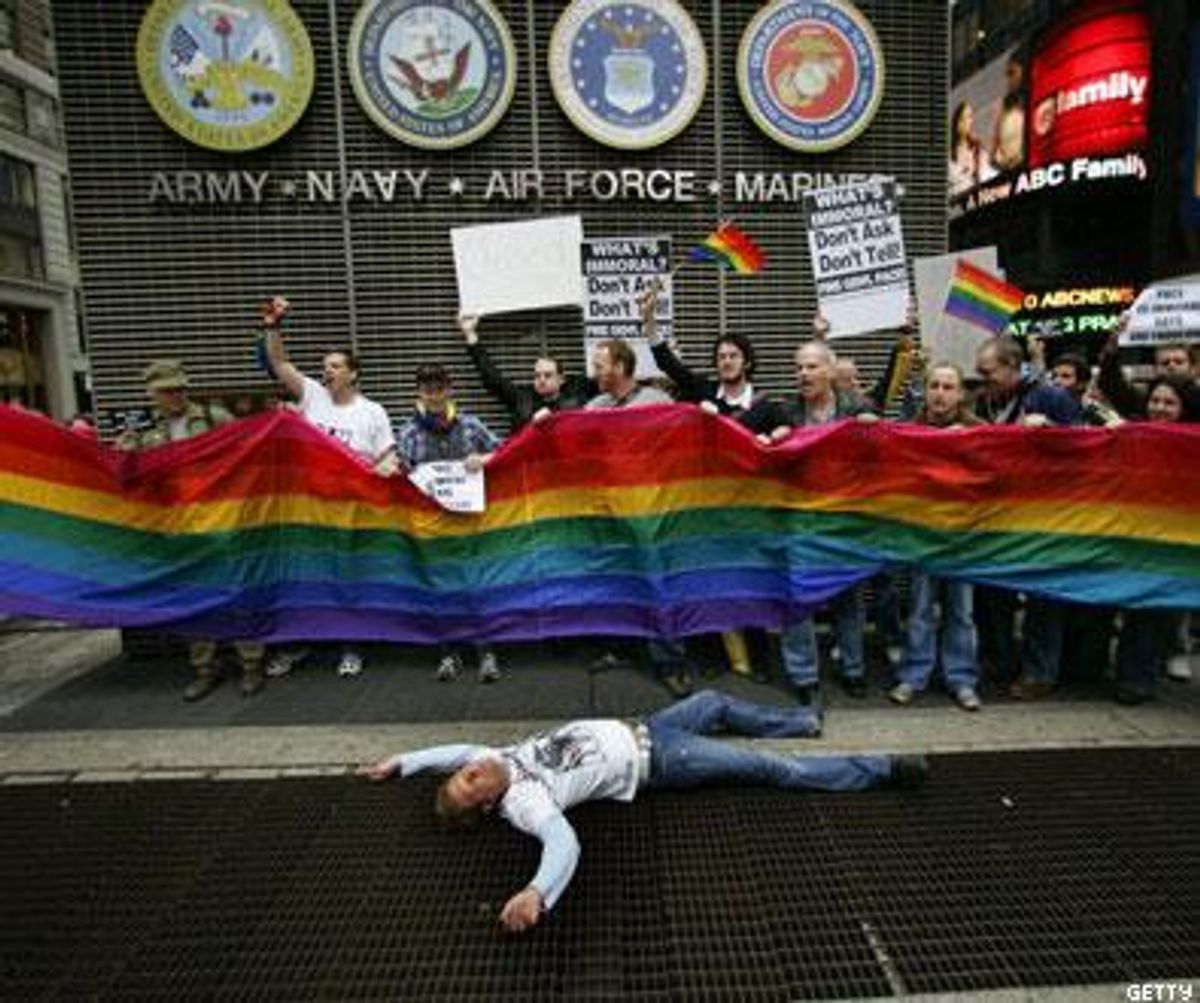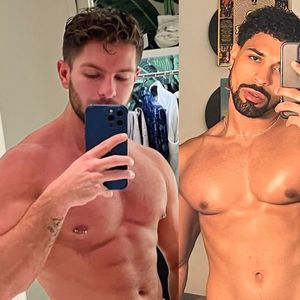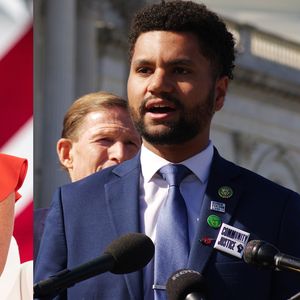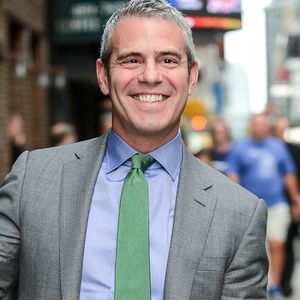Elaine Donnelly
made quite a name for herself at the "don't ask,
don't tell" hearing held by the House Armed Services
Subcommittee on Military Personnel on July 23. A
die-hard advocate of minimizing the role of women in
the service, Donnelly, the head of the Livonia,
Mich.-based Center for Military Readiness, is
now arguably the strongest civilian voice for the
"don't ask, don't tell" policy. But her
testimony before Congress was fairly bizarre -- she
warned of an increase in
"HIV-positivity" if gay soldiers were allowed
to serve openly, and she stated that gay people engage
in "passive/aggressive" behavior with
heterosexuals -- which provoked a backlash among many of her
questioners. Arkansas Democratic congressman Vic
Snyder, for one, told Donnelly that her arguments were
"just bonkers" and "dumb."
We thought so
too, so we checked the facts of four of her main arguments.
Argument 1: Sexual tension caused by gay soldiers
will hurt morale and discipline. Ending "don't ask, don't
tell," Donnelly argued, would "impose new,
unneeded burdens of sexual tension on men and women serving
in high-pressure working conditions."
But a 1993 RAND
Corp. study concluded that gay military personnel could
serve openly without detriment to readiness. Furthermore,
male and female soldiers have worked together for
years, and the military hasn't collapsed.
Helena Carreiras, a sociology professor at Lisbon University
in Portugal and author of the book Gender and the
Military: Women in the Armed Forces of Western
Democracies, says she knows of no studies
"that can point to a pattern of problematic
situations resulting from the integration of women in the
Armed Forces, deriving from sexual tension."
And gay and straight soldiers already work side by
side -- tension or no tension.
Argument 2: More gay soldiers equals more HIV infections. "Given the officially recognized
correlation between homosexual conduct and HIV
infection," Donnelly asserted, if "great
numbers of men having sex with men are inducted into
the military," there would naturally be an
increase in infections.
By
Donnelly's line of reasoning, as Snyder said at the
hearing, "we ought to recruit only
lesbians...because they have the lowest incidence of
HIV in the country." And if you exclude gay
men, shouldn't you also exclude
African-Americans? The two groups are the most "at
risk" for HIV, according to the Centers for
Disease Control and Prevention.
The British
military allows gays to serve openly, and according to Craig
Jones, a former lieutenant commander in the British navy,
there's been no evidence of an increase in HIV
rates for frontline troops.
Argument 3: We don't even know how many gay
soldiers there are. Donnelly disputed the oft-cited estimate of
65,000 gay men and lesbians currently serving,
comparing it to an "urban legend." Her
complaint? The estimate that 4% of Americans are gay,
lesbian, or bisexual -- from which the soldier figure
was derived -- is "speculative." Donnelly also
claimed that Gary Gates, a former Urban Institute
researcher who arrived at the number, employs
"questionable methodology."
The 4% figure was
derived from a government-funded survey, says Gates,
who submitted written testimony for the hearing. And Gates
uses Bayes' Rule for his statistical analyses,
"a method taught in virtually every beginning
statistics class," he says.
Argument 4: Open service by gays in other countries
has been problematic. "Contrary to the notion that all has gone
well," Donnelly admonished, "European
newspapers have reported recruiting and disciplinary
problems in the British military."
Among the five
newspaper articles she referenced to support her point was
a piece published in 2005 in The Times of
London that contains this statement: "Senior
officers want to encourage more gay and lesbian
sailors, estimated at 2,100, to 'come
out,' paving the way for the first openly gay
admiral." Maybe Donnelly didn't read the
piece?
According to
British naval lieutenant commander Craig Jones,
"There will always be incidents [involving]
racial prejudice or gender issues, things experienced
by society. But by and large, integration of gay soldiers
has been a hugely positive experience -- and
we're a better organization for it."
















































































